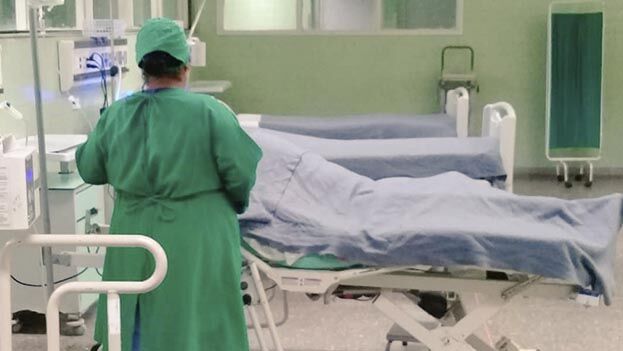
![]() 14medio, Madrid, Spain, December 12, 2022 — On Sunday, Cuba’s Public Health Minister Jose Angel Portal Miranda presented a draft of a Law of Public Health in which, along with other big news, the right to euthanasia is authorized.
14medio, Madrid, Spain, December 12, 2022 — On Sunday, Cuba’s Public Health Minister Jose Angel Portal Miranda presented a draft of a Law of Public Health in which, along with other big news, the right to euthanasia is authorized.
The text still is not known, but according to the official press, it proposes recognition of euthanasia as a “right of a person to a death with dignity and with attention to safe medical care by a health provider or a physician who will carry out the euthanasia.” “This is very revolutionary, and we should not deprive our people of this right,” said Portal Miranda.
According to the announcement, the Island will unite with seven other individual countries that have legalized active euthanasia around the world: Holland, Belgium, Luxembourg, Spain, Canada, Columbia and New Zealand. Nevertheless, Cuba could opt to follow other models after discussing the definitive text. There are countries that have approved assisted suicide, such as Germany and Switzerland, and others in which passive euthanasia is practiced (a method much employed and present in Nordic countries, the UK and France, and in Argentina, Chile, Mexico and India).
The draft law of public health also introduces other practices, such as limits on free services. Thus, Cuban residents who live abroad should pay for their medical expenses on time. The law guarantees the right to public health, but is limited to Cubans, foreigners with permanent residency in the country and humanitarian alien residents, as opposed to countries like Spain that maintain a public and universal system for nationals and foreigners.
Other novelties of the law would require the informed consent, to be signed by the patient or his/her legal representative in the event that he/she is not able to approve the medical proceeding to which he/she will submit. Progress was also made for separate attention to social, sexual and reproductive health and for assisted reproductive health.
The content of the law will be disclosed in the first quarter of 2023 and will be discussed to evaluate it with the workers of the sector and the population to subsequently present it to the National Assembly. But the controversy that approval of euthanasia will cause is already foreseeable. In the debate of this Sunday’s committee first concerns were already raised, including that of a deputy who asked if it would apply to children.
José Luis Toledo Santander, chairman of the Committee on Constitutional and Legal Affairs, replied that many aspects have to be analyzed and the law is still in a preliminary phase. Other deputies agreed that they expected the establishment of a very specific framework of rights and guarantees for health workers.
In addition, other related issues were addressed in the committee, such as the shortage of medicines. The minister noted that there are 252 basic medicines (composed of 627) that are imported, which is 40%, while the remaining 60% is produced by the Cuban industry. He also specified that 347 are for institutional use and 280 for sale in pharmacies, of which 84 are included in the control card.
As of December 5, the lack of medicines affected 219 products (of which 28 belong to the card) and another 197 had a supply expected to last less than 30 days.
“It is very hard, and we are convinced that nothing relieves when some medicine is missing, but we have not stopped the health system from implementing actions to alleviate the situation as much as possible,” Portal Miranda said after talking about the large amount of funding that has been dedicated to the pandemic, 53% of the resources, which has decreased spending on other items.
The problems are not limited to drugs. The minister spoke of resources such as catheters, transfusion equipment, prostheses, collectors and, of course, parts of diagnostic technological machinery that reduce capacity by 9%.
After reciting all the operations and services that have been carried out on the island, the minister announced, without details, that a new model for the network of pharmacies and opticians will begin “experimentally in Havana, in search of greater control and transparency in the area of medicines and the protection of vulnerable groups.”
The commission also addressed the situation of the collection of waste, as well as the necrological services, both in frank decline. However, the most worrying data were those offered in funeral transportation.
Mildrey Granadillo de la Torre, Deputy Minister of Economy and Planning, said that 615 hearses are needed to guarantee service and 377 are currently operating. Of these, only 233 are working.
“It’s a very complex scenario, because it’s not just about parts and pieces, but that they are aging car brands. Those operating are mainly over 15 years old, with a significant degree of deterioration,” he said. At the moment, 35 new imported vehicles are expected to arrive this December, although it was not said from where.
____________
COLLABORATE WITH OUR WORK: The 14ymedio team is committed to practicing serious journalism that reflects Cuba’s reality in all its depth. Thank you for joining us on this long journey. We invite you to continue supporting us by becoming a member of 14ymedio now. Together we can continue transforming journalism in Cuba.
